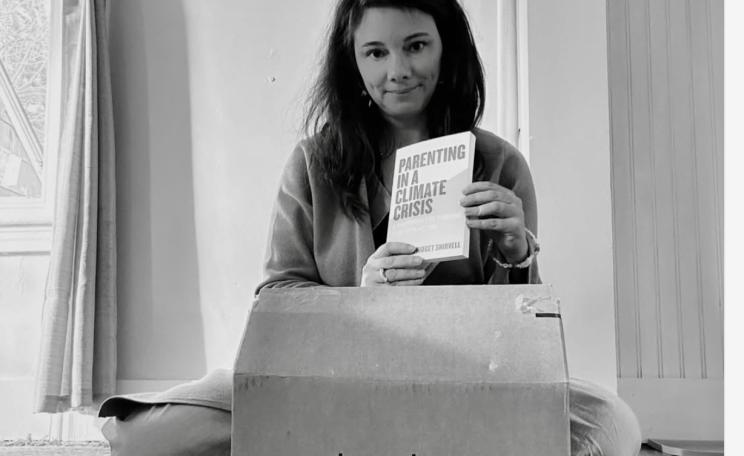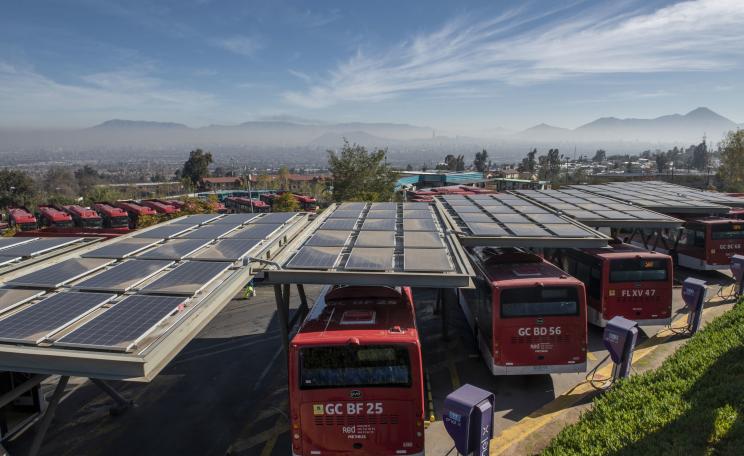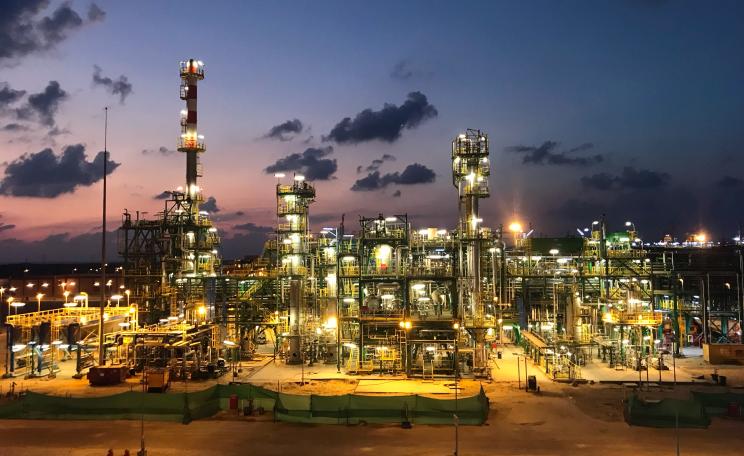It's terrifyingly believable, as is Comer's extraordinary performance as a woman struggling to cope with her whole world being upended
The End We Start From is a film about the UK struggling to cope in the aftermath of a huge storm that sees London and southern England plunged underwater, disrupting food and other vital supplies to the entire country. But it's really a film about motherhood and resilience, about love and death, about life persevering.
Jodie Comer stars as Mother, a woman who goes into labour as the storm waters invade her London home. She and her husband R (Joel Fry) decamp to his parents' house, but tragedy separates them. After meeting and immediately befriending fellow new mother O (Katherine Waterson), the women travel the country looking for food and shelter, before each woman has to decide the best course of option for post-disaster life: creating something new, or trying to return to the old.
This article has been published through the Ecologist Writers' Fund. We ask readers for donations to pay some authors £200 for their work. Please make a donation now. You can learn more about the fund, and make an application, on our website.
Mahalia Belo's film (with a script from Alice Birch, adapted from Megan Hunter's novel of the same name) has been described as apocalyptic, but it isn't, really, or at least it's a very small, very polite, very British apocalypse.
Connection
It doesn't even rain much beyond the opening scenes, which goes to show how hopelessly vulnerable we are as a country to even short-term weather events.
The UK is nowhere near self-sufficient and relies on foreign imports for nearly half our food. The UK's food supply chain operates on a complex 'just in time' system which is vulnerable to even minor disruption or change in consumer behaviour.
Anyone who has ever witnessed panic buying in the supermarket, anyone who tried to buy toilet paper or pasta during lockdown, can recognise the frenzy as Comer is caught in the middle of a hoard of people swarming a food truck. It's terrifyingly believable, as is Comer's extraordinary performance as a woman struggling to cope with her whole world being upended.
For the first half of the film she is abandoned and powerless, waiting for others to return and rescue her. The second half becomes increasingly less realism-based and more abstract as she sets out on a journey of self-actualisation and independence. Her growing strength is rooted entirely in her motherhood. Both Mother and O are rarely seen not clutching their babies to their breasts, their fierce pride at what they've made palpable.
The film embraces these tiny moments of connection. Comer and Waterson sing hits from Dirty Dancing as they hike. They get drunk and dance with a stranger (Benedict Cumberbatch, in a tantalisingly brief cameo as a kind but damaged man). They hold each others' babies, knowing that sometimes you just need a minute alone to remember who you were before you were Mother.
It's terrifyingly believable, as is Comer's extraordinary performance as a woman struggling to cope with her whole world being upended
Solidarity
It's the women who make this film. Joel Fry does some exceptional work here, but the male characters are written with less nuance and less care. This is woman as hero and woman as hero's journey.
As she journeys, Mother's quest takes on mythic properties. Her baby stops crying and seems to not need nappies. She steals a car, confronts wild animals. This all creates a sense of being in a dream-state, but it is also jarring.
The reality of being a refugee traversing the country in a desperate quest to find food would be much grimmer and darker than this, but this is also the film's power. All the violence is off screen and implied, and there's no sexual violence, though the music and cinematography create a constant underlying sense of menace.
The lack of sexual violence and the emphasis on female solidarity is joyous, but it also creates the sense of being a film that exists in the ellipses, in what isn't shown. Events are experienced entirely from Mother's point of view and she doesn't know what's going on. There are scene cuts where the audience is left to imagine what has happened, which could be everything or nothing.
Naive
There's also a curious lack of any real sense of time. Mother gives birth in the first act, her baby is clearly played by different children at different points and the child actor playing her infant in the final scenes is visibly much older, but it doesn't seem as though much time as passed. It's impossible to tell whether Mother has been travelling with her baby for weeks or years.
This is not a perfect film. The repeated water motif as a metaphor for motherhood is overused to the point of cliche, and the trite happy ending is unearned.
The film is a changeling: nebulous, hazy, never quite within your grasp. There's no world-building, little attempt to explain what's going on.
Ultimately, what is this film? Is it a brutal exploration of the potential impact of the climate emergency on a complacent west sleepwalking into disaster? An ode to the strength and beauty of motherhood? A metaphor for the anxieties of parenting? A Bildungsroman about a naive young woman's journey of self-exploration and empowerment? All of these things?
This Author
Naomi Westerman is a playwright and screenwriter, and former anthropologist. Her book Happy Death Club, which explores the environmental impact of the death trade, is published in May and available for pre-order.
This article has been published through the Ecologist Writers' Fund. We ask readers for donations to pay some authors £200 for their work. Please make a donation now. You can learn more about the fund, and make an application, on our website.




